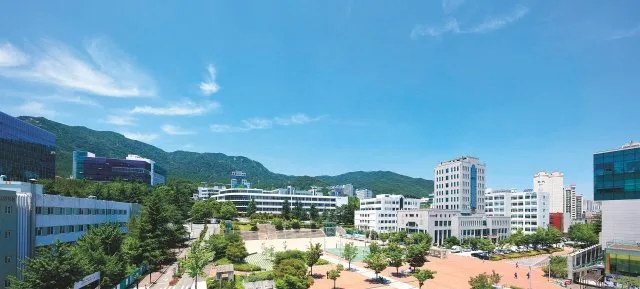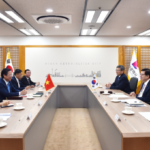BUSAN – As the South Korean Ministry of Education pushes the envelope of its ‘Glocal University 30 Project’, Busan strengthens its determination to play a pivotal role in this journey. Today, at the city hall, a comprehensive strategy for the city’s involvement was unveiled.
Central to this project is the idea of merging the global and the local – blurring boundaries within and outside universities while fostering national and international partnerships. The Ministry’s vision is to uplift 30 regional universities by 2026. Pusan National University (PNU) and Busan National University of Education(BNUE), having made it to the list of 15 preliminary nominees last June, seem primed for an elevated status.
For Busan, this year stands as a testament to its commitment to spearhead the industry-academia collaboration movement. The city has been actively rooting for PNU and BNEU to cement their places as ‘Glocal Universities’. And with its significant stride into the Regional Innovation-Centric University Support System (RISE) this past March, Busan is undoubtedly on the path of regional innovation.
Today’s deliberations, under the guidance of Busan’s mayor, assembled a diverse set of stakeholders. The discussions encompassed the strategic road ahead for the ‘Glocal University 30’ title. In an applaudable gesture, the student representatives from PNU and Busan National University of Education were also brought into the fold, ensuring a comprehensive dialogue on integration.
The presented ‘Glocal University Vision’ draws inspiration from the “Edu-TRIangle”. The blueprint revolves around:
- Transforming Education through Governance Convergence: This strategy emphasizes melding PNU and BNUE to create a novel educator-nurturing mechanism.
- Redesigning Education Systems for Integrated Talent Cultivation: This model aspires to pivot PNU’s educational paradigm, centering around student-centric reforms.
- Leading Future Industries via Campus Specialization: This ambitious plan aims to redefine the role of universities in augmenting the international competitiveness of regional industries.
Busan’s Mayor, Park Heong-joon, remarked, “The region and our local universities, notably PNU, must grow in tandem. We need them to evolve into institutions of global repute.” He further pledged Busan’s unwavering commitment toward transforming the city into a leading hub for industry-academia collaborations.
While the impending ‘Glocal University’ title for PNU and BNUE this coming November is highly anticipated, some critical questions remain unanswered:
- The plan for a ‘digital campus’ is commendable, but how will these universities combat challenges associated with digital transformation?
- The ‘Human-Care’ platform’s specifics remain ambiguous. What sets it apart from current initiatives?
- The strategy proposes dismantling academic silos. But is this feasible given potential resistance from traditional academic departments?
- How can Busan truly compete on the global stage, especially as it aspires to become an Edu-Tech hub?
In closing, Busan’s ‘Glocal University’ vision and commitment are evident. But as with any ambitious endeavor, its success will be in the execution, and the world will be keenly watching.



